
It's June, Summer is coming!
Why not stroll with me alongside the rivers Rhône and Arve in the sunshine?
We can spot the stunning Alpine mountains in the horizon, but though there's still snow on the top of Mont-Blanc, down here we can still enjoy the sweet touch of Summer.
But where is "down here"? Why it's the wonderful city of Geneva of course!
Welcome everyone to Switzerland!
Thanks to Gjon's Tears who conquered the hearts of many FSC-participants in May we've travelled to the very centre of Europe: Swizerland. So let's all listen to his winning song once again:
----------------------------------------------------------------------------------------------------------------------------------------------------------------------------------------------------------------
Our travels have brought us to Geneva:
It's a city and municipality in southern Switzerland. It's the capital of the canton of Geneva and is, next to Zurich, the largest city in the country with around 200,000 inhabitants.
Geneva is a diverse city in a diverse country, hence being called several different things in the country's four official languages: "Genève" in French, "Genf" in German, "Ginevra" in Italien and "Genevra" in Romansh. The main language in the city, however, is French.
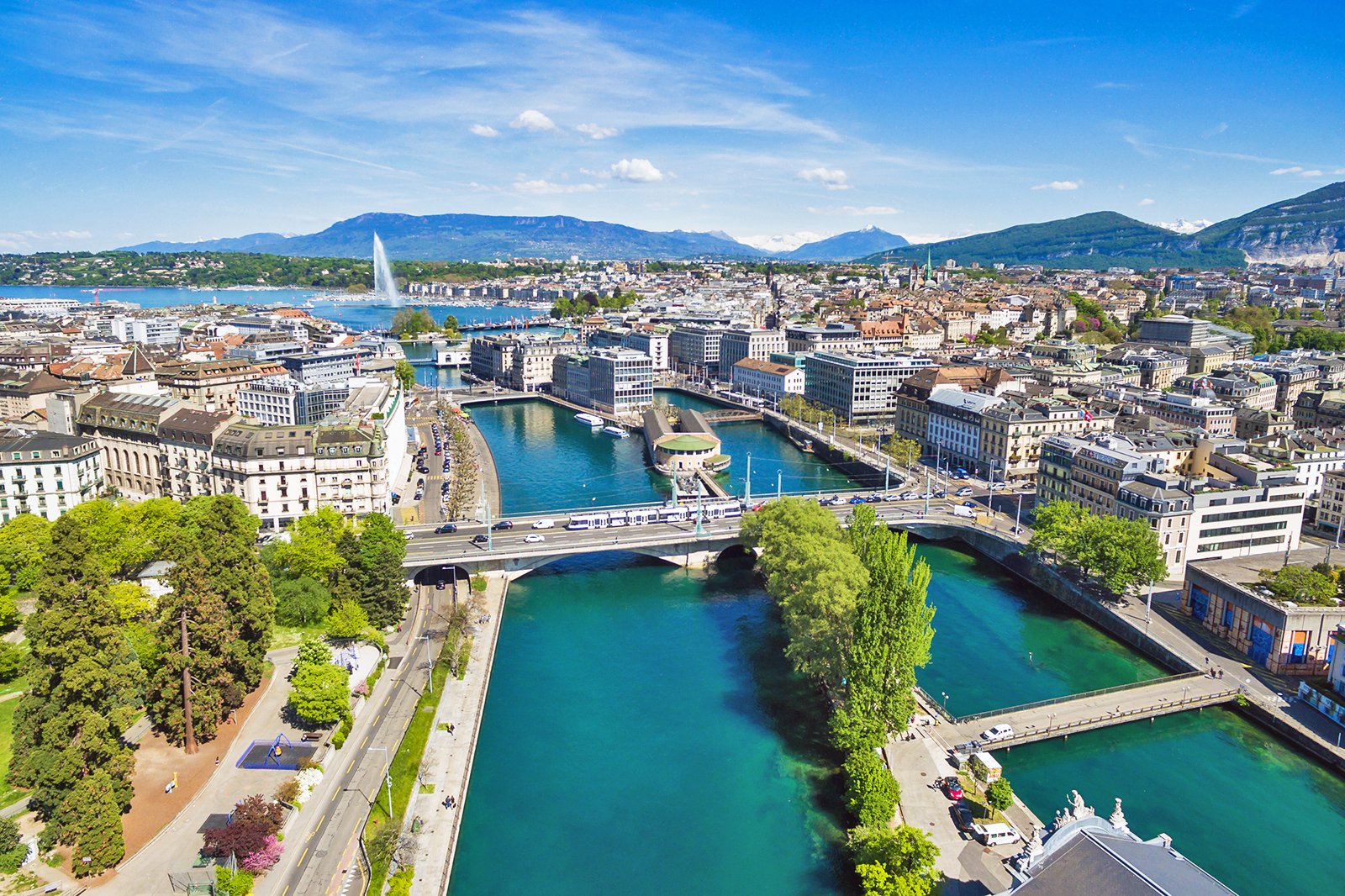
Geneva is a center for international politics, business and diplomats. A large number of international organizations have their headquarters in the city, among others EFTA, WTO, WHO, CERN and FN's European office.
The headquarters of the International Committee of the Red Cross is located in the city too, thanks to the Swiss businessman Henry Dunant. After having witnessed the horrors of war after the Battle of Solferino in 1859 he decided to act: he proposed two different ways to avoid such terrrors. The first one was a organization aiming for humanitarian aid in times of war (which eventually got founded as the Commitee of the Red Cross in 1863), the second proposal was to get the fighting parter to acknowledge the humaitarian aid as neutral and necessary (which eventually turned into the Geneva Convention in 1864). In 1901 Henry Dunant received the Nobel Peace Prize for his work.

Geneva was originally a Celtic city, which around 120 BC came under Roman rule. The city fell to the Burgundians in 443, became Frankish in 534, and in 888 became part of Transjurane Burgundy, which for a time had its capital here. In 1032 Geneva became part of the German-Roman Empire and in 1156 came under the Prince-Bishop of Geneva.
During the battles with the feudal lords of the region, the dukes of Savoy, Geneva sought to join the Swiss Confederation and managed to assert its independence against them.
In 1536 the Reformation was carried out in Geneva. That same year in July Jean Calvin, the famous French theologian and Christian reformer came to the city. He was expelled in 1538 for his quest for power, but returned in 1541 and introduced the life-changing theocracy, which he could only maintain with a reign of terror against the liberty party of the "libertines". His successor as head of the Geneva church was Theodor Beza in 1564.
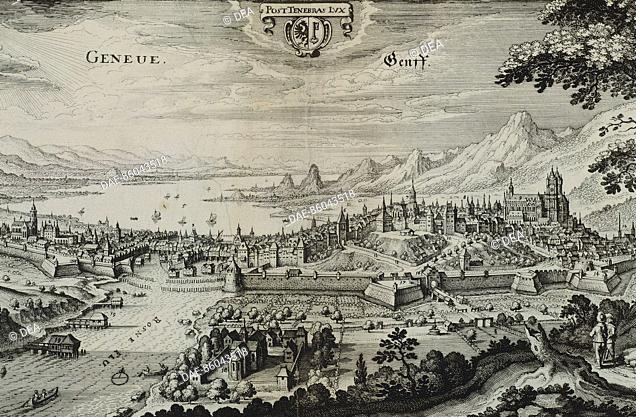
After the Reformation an aristocracy was educated in the city. The bourgeoisie was divided into citoyens who were allowed and bourgeois, who were not allowed to take part in the board. In addition there were immigrants from the city's subordinate rural areas. Several uprisings were made to restore popular rule but all were crushed. First, inspired by the French Revolution, in December 1792 the bourgeoisie made a revolution, which in 1794 found its success in the introduction of a democratic constitution. France annexed the city-republic in 1798 and made it and its surrounding countryside the department of Léman. After the defeat of Napoleon I, the Republic of Geneva regained its independence, and the next year the city became a part of the Swiss Confederation.
In that connection, an aristocratic constitution was reintroduced in 1814.
An uprising in 1841 forced a new constitution whereby universal suffrage was introduced. New disturbances followed in 1843 and 1846, and resulted in the constitution of 1847. The constitution took it's current form in 1930.

Because of Geneva being the centre of the Red Cross as well as the place of origin of the Geneva Convention, many refugees sought a better and safer life in Geneva in the early 20th century, especially when World War I was raging in the neighboring countries. As well as the rest of Switzerland, Geneva remained neutral. The same thing happened during World War II where a total of 115,000 refugees fled to Switzerland, many of them to Geneva.
----------------------------------------------------------------------------------------------------------------------------------------------------------------------------------------------------------------
What can we see or do?

Switzerland is well know for it's Winter sports and ski resorts in Winter, and stunning views when hiking or mountaineering in the Alps in Summer. Switzerland sure has a lot to offer with its lakes, forests and mountains.
Actually Switzerland is a tourist destination so popular all year round that 4% of the working population is employed in the tourist sector. The total of overnight stays by tourists in Switzerland are nearly 40 million a year, especially from Germany.
Settled on the shores of the Geneva Lake, the biggest lake in Western Europe, with beautiful nature all around, Geneva has a lot to offer when it comes to tourism too.

One of the city's most iconic landmarks is the “Jet d’Eau” – a fountain with a 140-metre-high water jet at the periphery of Lake Geneva. It's situated where Lake Geneva exits the Rhône, and it's not only visible throughout the city, but can also be seen out of the windows when flying over Geneva at an altitude of ten kilometres!
The first Jet d'Eau was installed in 1886 at the Usine de la Coulouvrenière, a little further downstream from its present location, but because of its aesthetic value it was moved to it's current location in 1891 in order for everyone in the city to see it and to mark the 600th anniversary of the Swiss Confederation as well as the Federal Gymnastics Festival. And that's not the only time the fountain has been a symbol of a sports event: It was the official logo of the group stages at the 2008 UEFA Euro in Geneva.
The fountain is operated throughout the day all year round, but between Spring and Autumn it's possible to enjoy the fountain lit by 21 lights in the evenings too.

The old town is another part of the city that usually amaze tourists. Centered at the Place du Bourg-de-Four, the oldest square in the city, cozy streets spread out in all directions, buzzing with life among the elegant shops. But the most distinguished part of the old town must be St. Peter’s Cathedral. The cathedral was built between 1160 and 1252 as a Catholic church, but converted to a reformed Christian cathedral when Jean Calvin preached there.
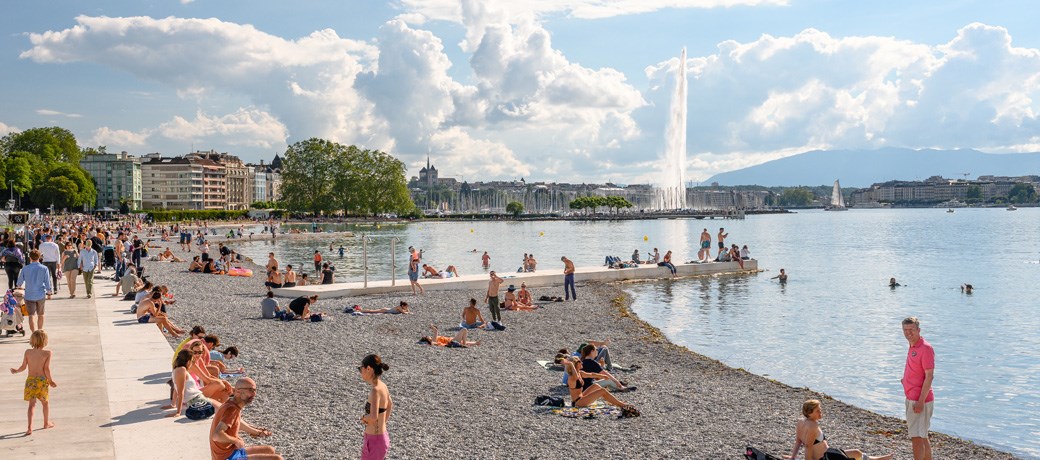
Before heading to our venue we should have time to enjoy the lovely Summer vibe in the city, either in Parc la Grange close to the harbour or in Parc de la Perle du Lac at the shore. Or how about a swim in the lake? Bains des Pâquis, the Plage des Eaux-Vives or the Plage du Reposoir should be perfect places for that. Or we could go paddleboarding? There's so much to do in the great weather here!
Right, time to head to our venue for the show is about to start soon...
----------------------------------------------------------------------------------------------------------------------------------------------------------------------------------------------------------------
Our host venue: SEG Geneva Arena

The SEG Geneva Arena is a multi-purpose arena located near the airport, just at the French border.
The venue was opened in November 1995 with concerts by Johnny Hallyday after 10 months of construction.
It has a surface area of 2000 m2, and a total volume of 95.000 m3. The roof consists of 330 tons of metal framework!
It's part of the Palexpo Complex which is a convention centre, capable of hosting world class sport events like Laver Cup and Davis Cup in tennis. In 2028 it'll host the final week of the European Handball Championship too.
The SEG Arena can accomodate a total of 9500 guests when big concerts or events are being held, which happens frequently. Though the permanent seats are shaped in a amphitheater style, it's possible to put up extra seats arranged differently depending on the event.
When the biggest names in music come to Geneva to perform, it'll most likely be in the SEG Arena, and huge names like Ramstein, Celine Dion, David Bowie, Sting and Rihanna have already graced the stage.
A total of 1600 events have been held in the arena since 1995, and it has got around 250,000 spectators each year.
----------------------------------------------------------------------------------------------------------------------------------------------------------------------------------------------------------------
Our hosts: Mélanie René, Corinne Gfeller & Willy Santer

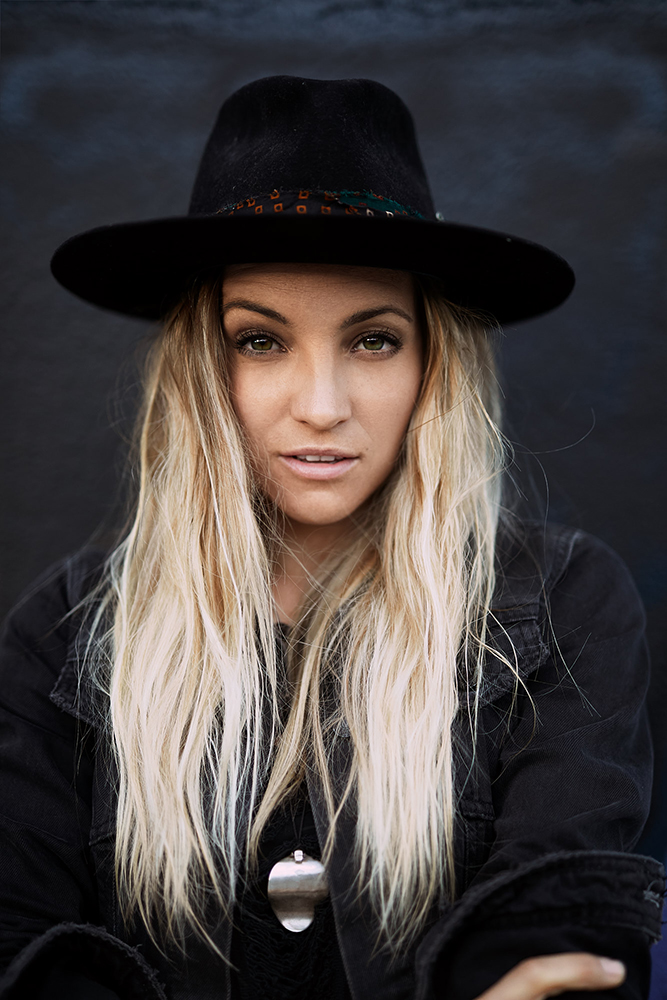

Mélanie René is a Swiss singer and songwriter of Mauritian origin from our host city Geneva. She has been training performing arts and song-writing at the Funambule Theatre in Nyon, Switzerland, as well as studying music at the Academy of Contemporary Music in Guildford, United Kingdom, and Brighton Institute of Modern Music, United Kingdom.
Her breakthough came when she won the Swiss National Final to Eurovision Song Contest 2015 with the song "Time to Shine". The song ended last in the semi final with just 4 points. She was not all done with Eurovision, as she helped choose the Swiss hopeful for the following Eurovision as part of the jury. She re-branded herself as "Melyz" in 2018 and released her debut EP "Don't Tell On Us" in 2019.
Corinne Gfeller is a Swiss singer from Lucerne. She has been training at Laine Theatre Arts in London, United Kingdom.
She has performed with multiple high-profile musicians, including Donna Summer, Prince and Thirty Seconds to Mars. She was the lead singer for Basel Tattoo 2010 and 2017, Art on Ice, and the European leg of the We Will Rock You: 10th Anniversary Tour by Queen.
She's mostly known for being the lead vocalist in the duo Zibbz which she started at the age of 23 with her younger brother. The duo went on to represent Switzerland at Eurovision Song Contest 2018, but ended 13th in their semi final, hence not making it to the final.
Willy Santer is a model, originally from Toulon in France. He did, however, win Dauphin Mister Swiss 2022. That meant a flight to Chiang Mai and a place in the competition "Mister Global 2022". Sadly he didn't make it to top 15.
----------------------------------------------------------------------------------------------------------------------------------------------------------------------------------------------------------------
Ready to get started?
Our hosts certainly are!
They're already on stage either performing their Eurovision entries or showing some muscle!



----------------------------------------------------------------------------------------------------------------------------------------------------------------------------------------------------------------
Last edited:


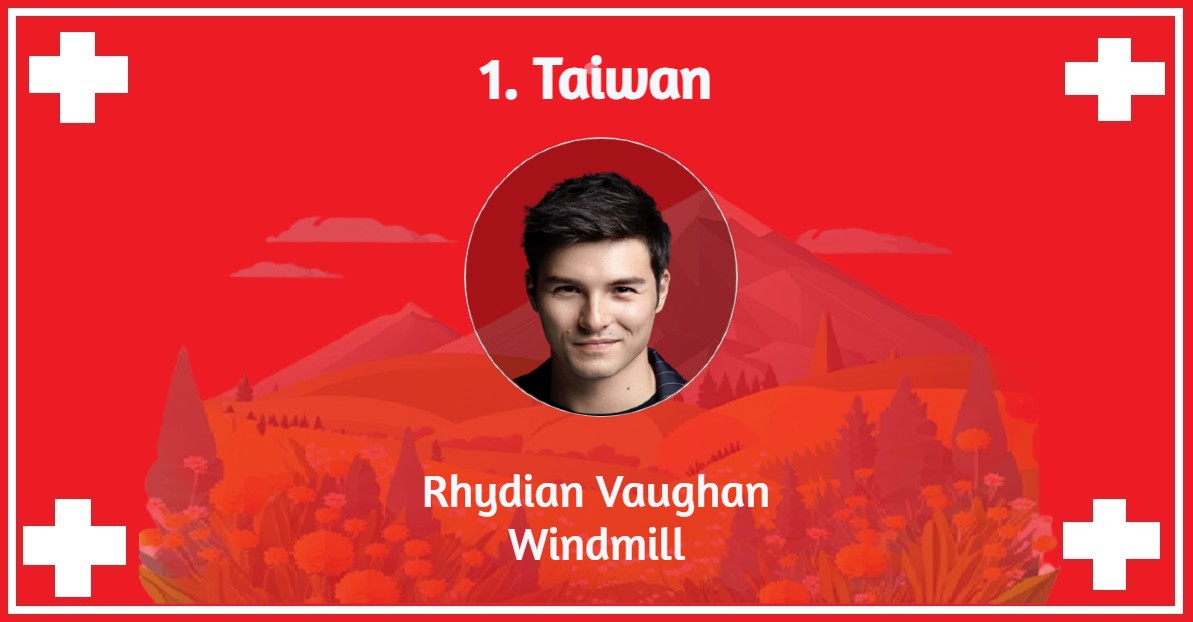
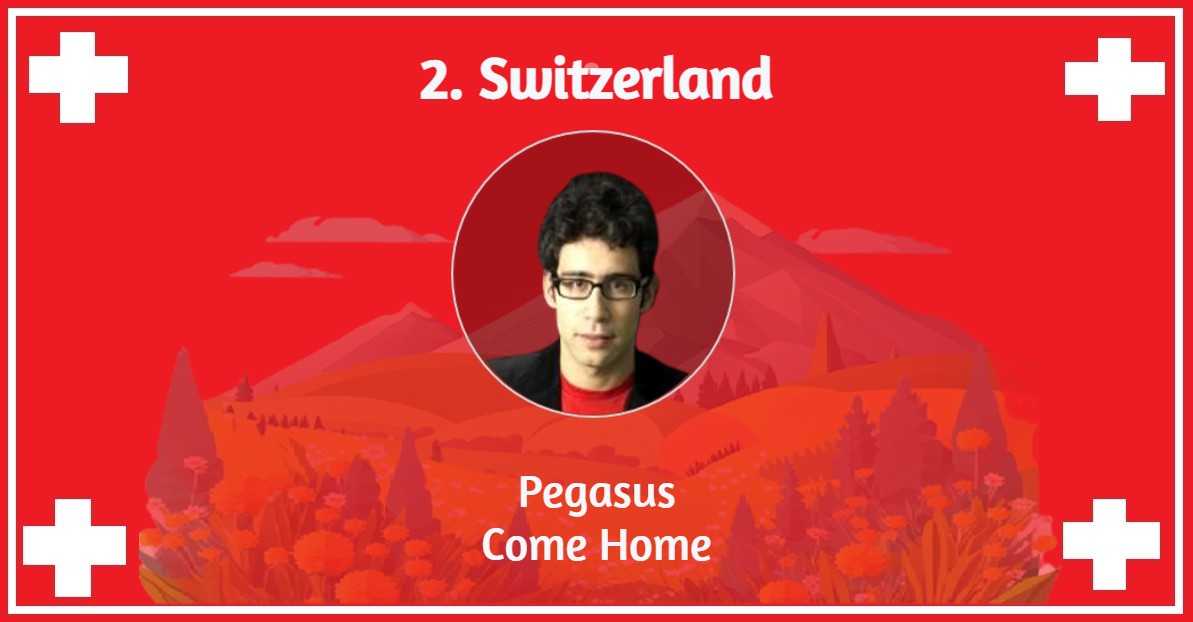
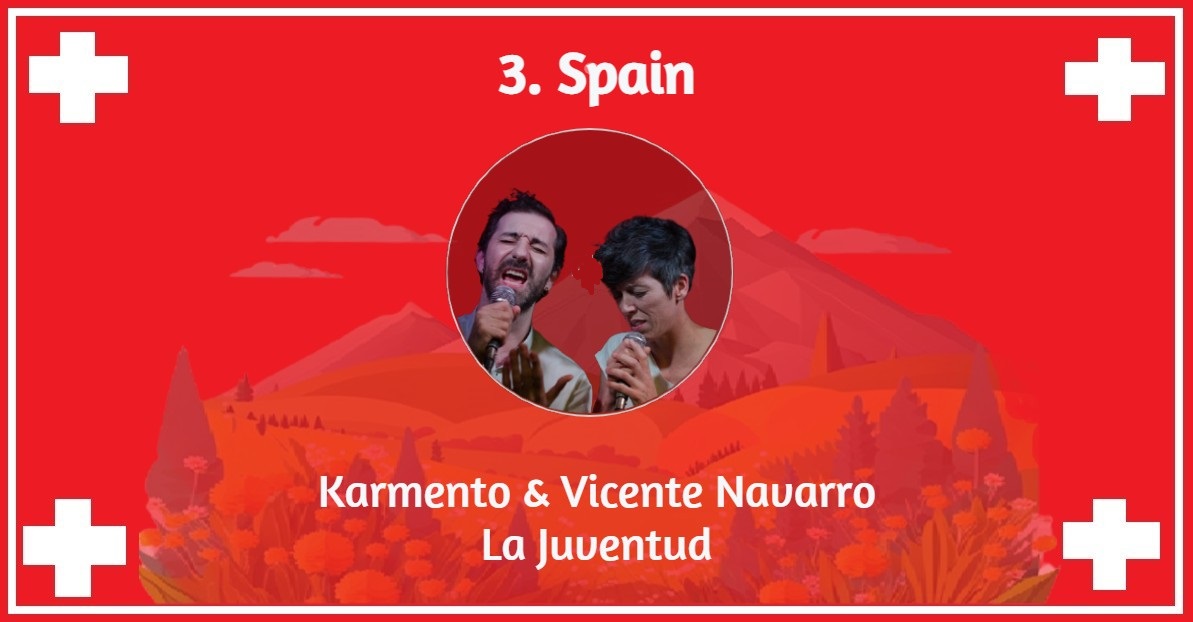
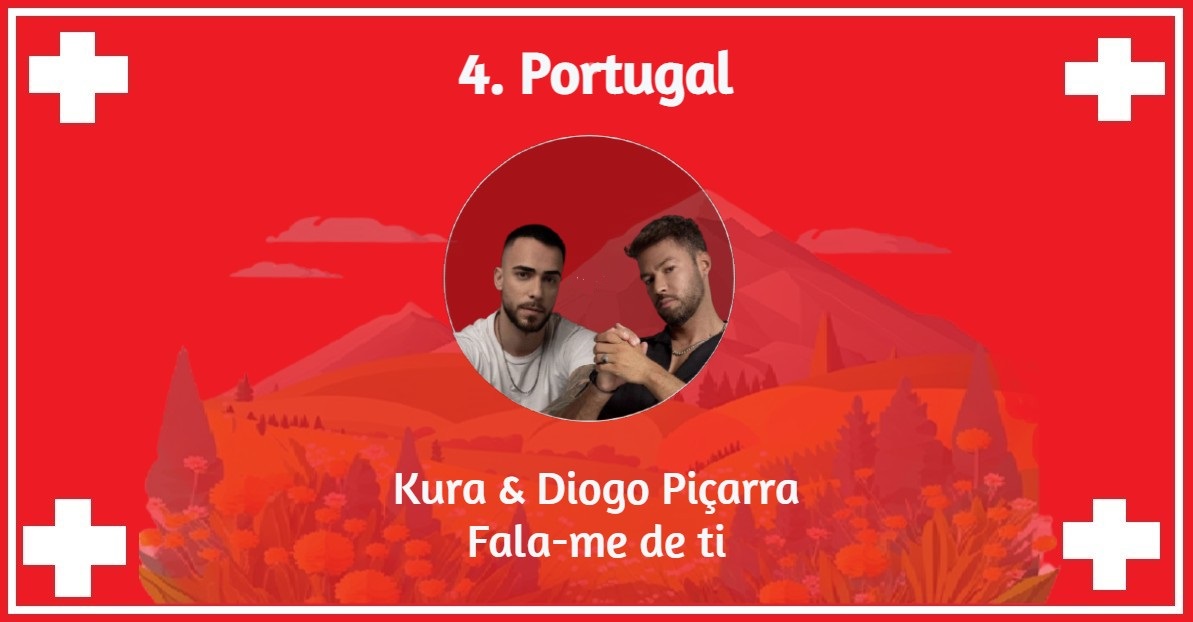
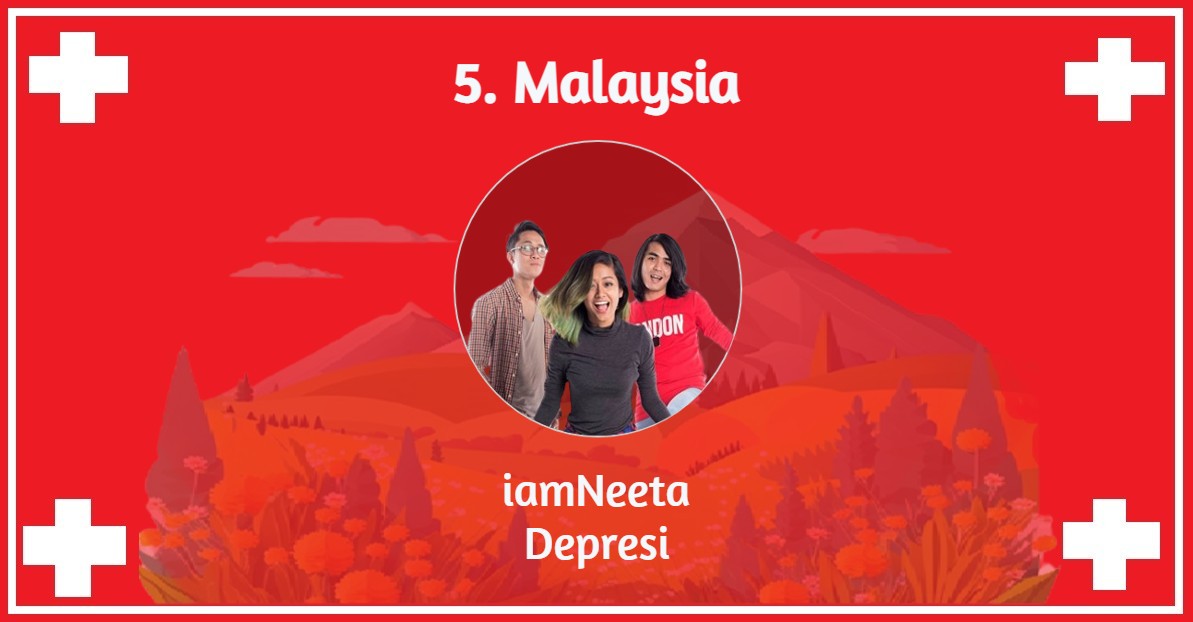
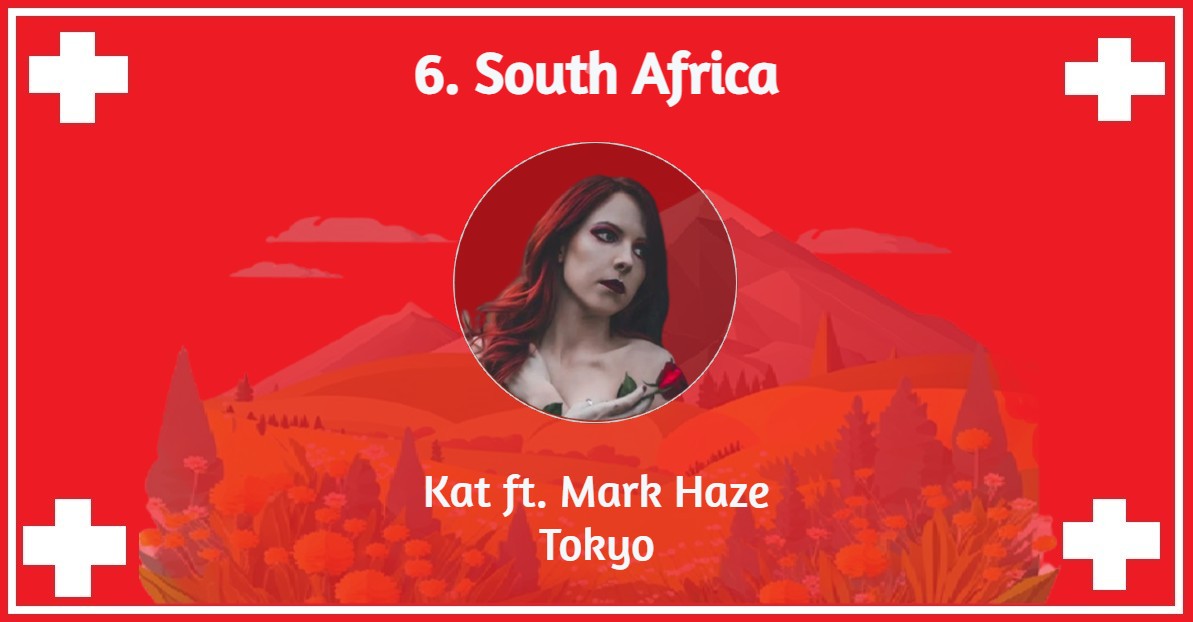
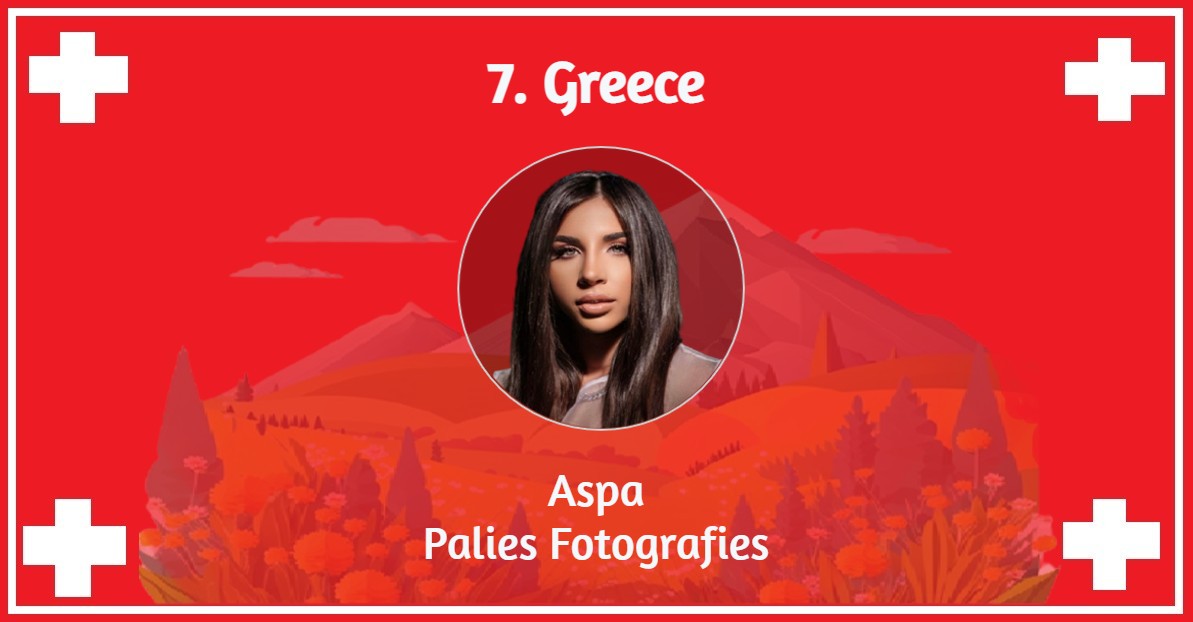
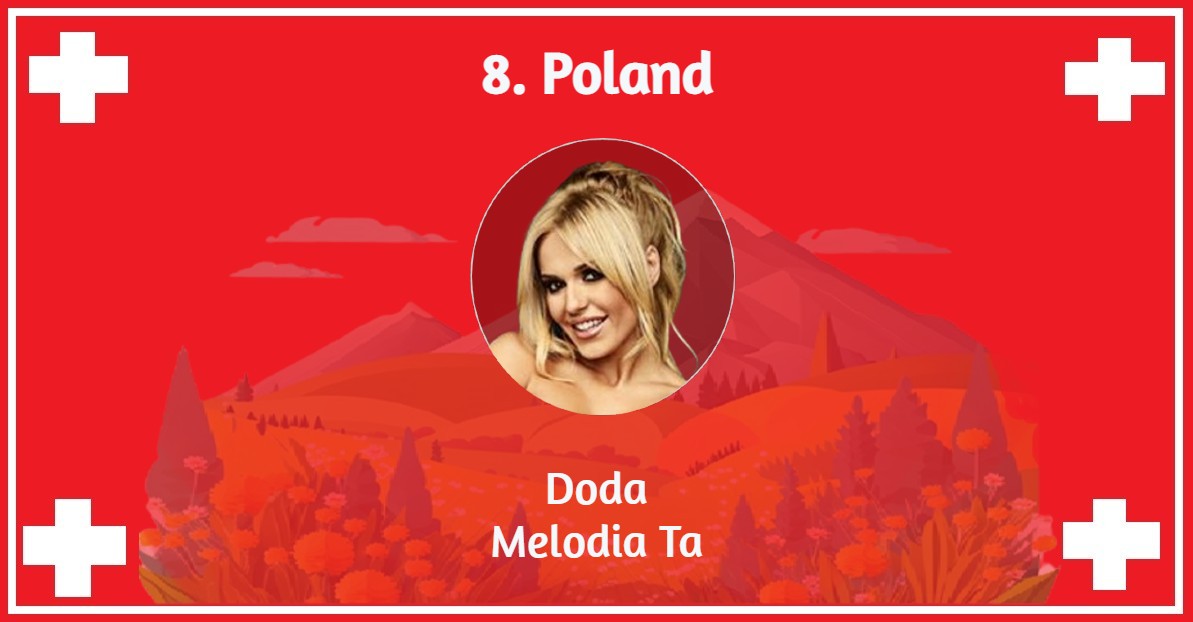

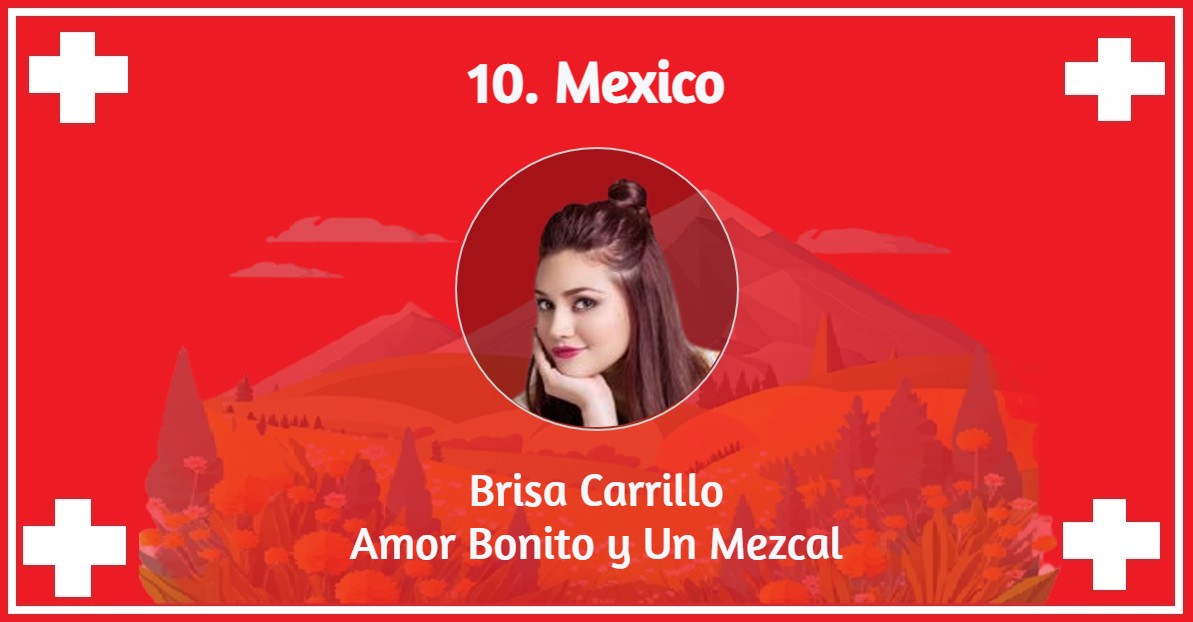
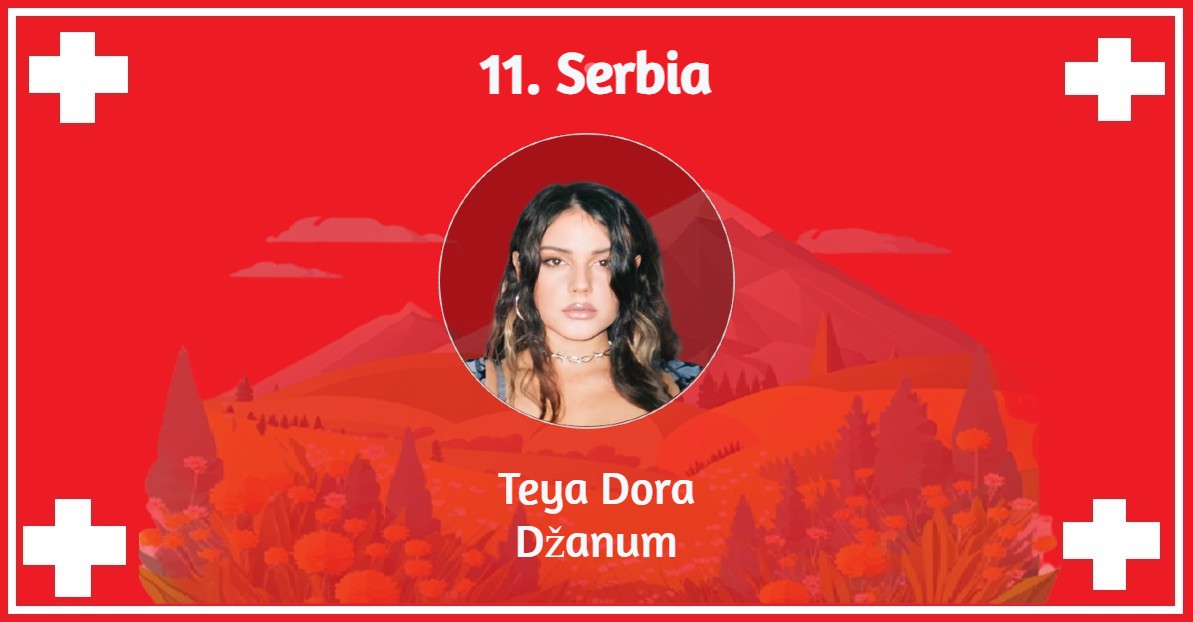
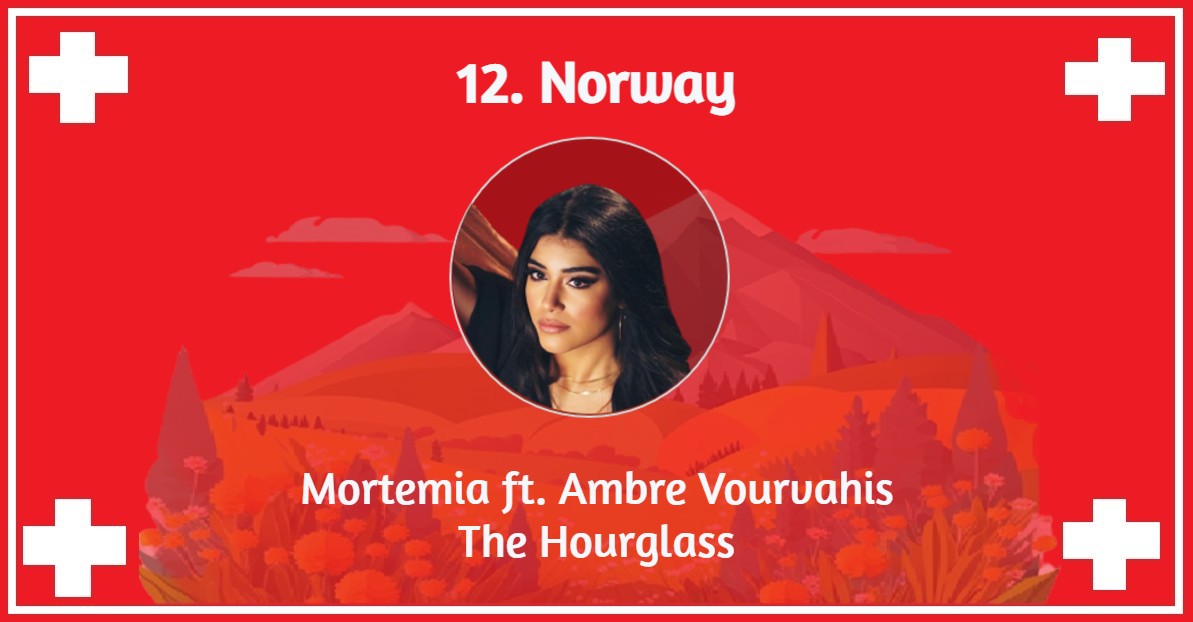
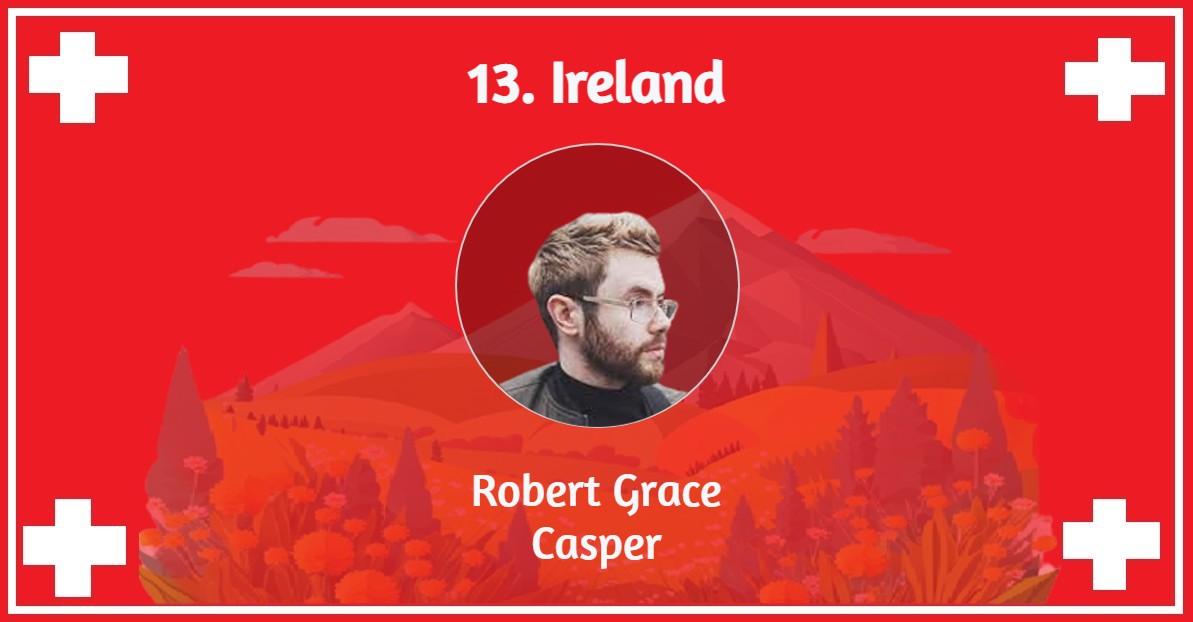
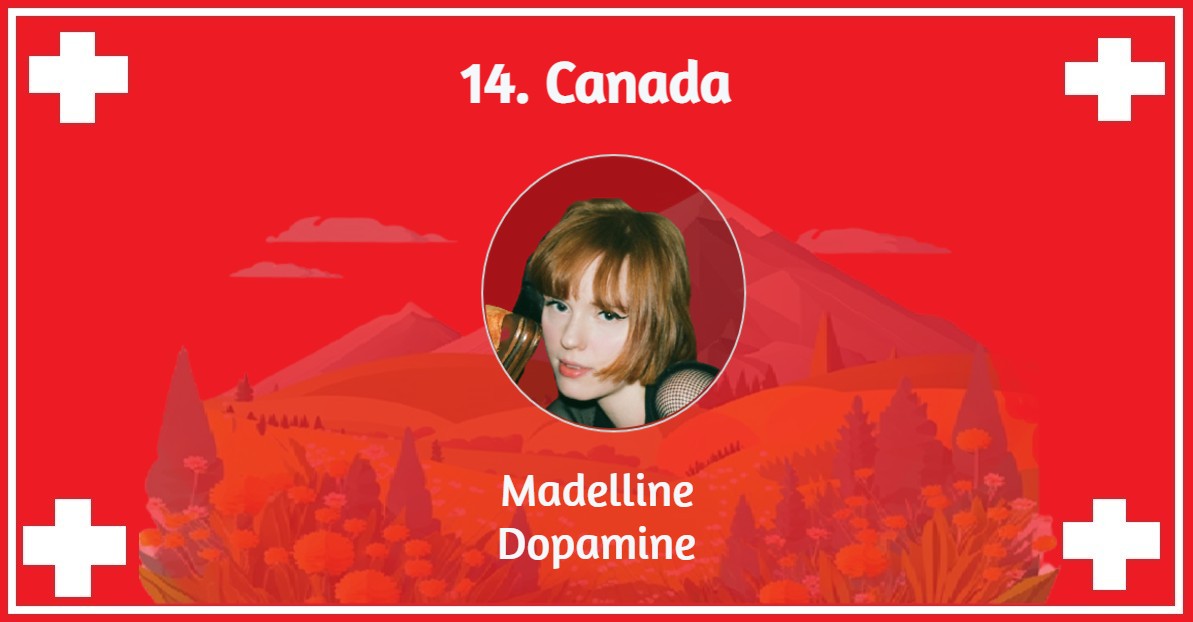
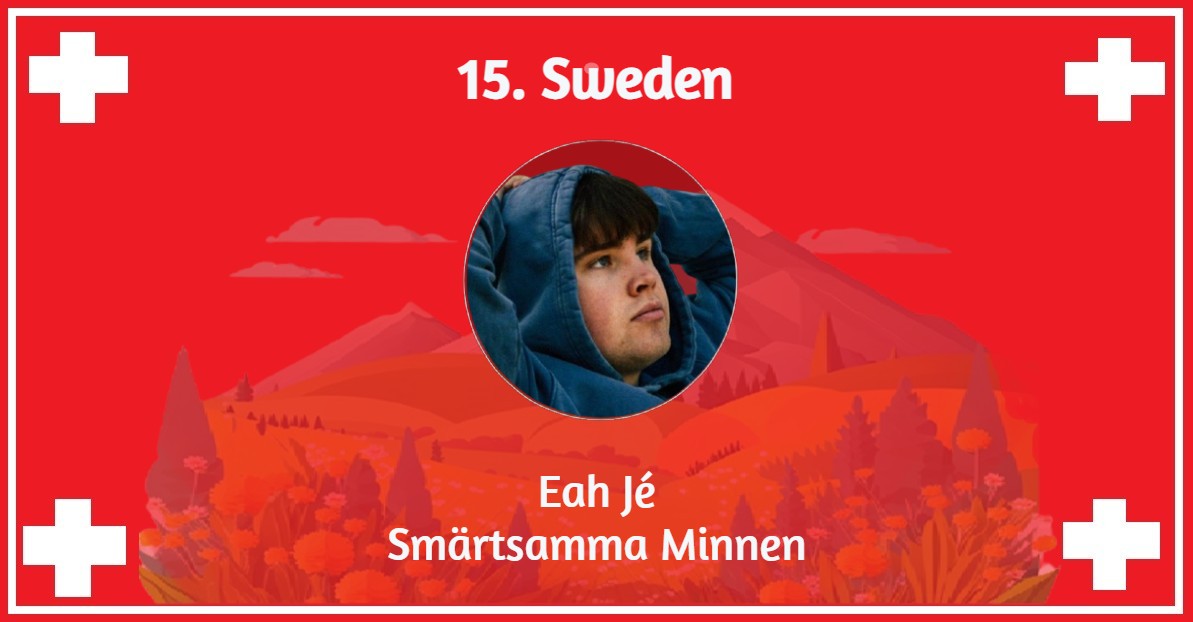
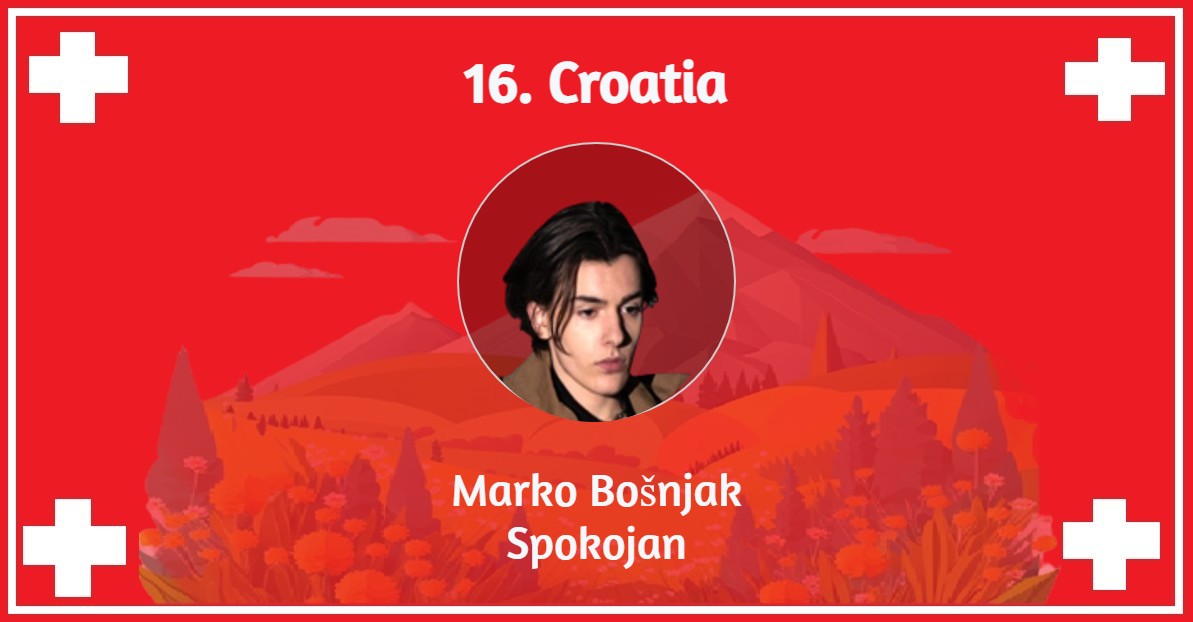
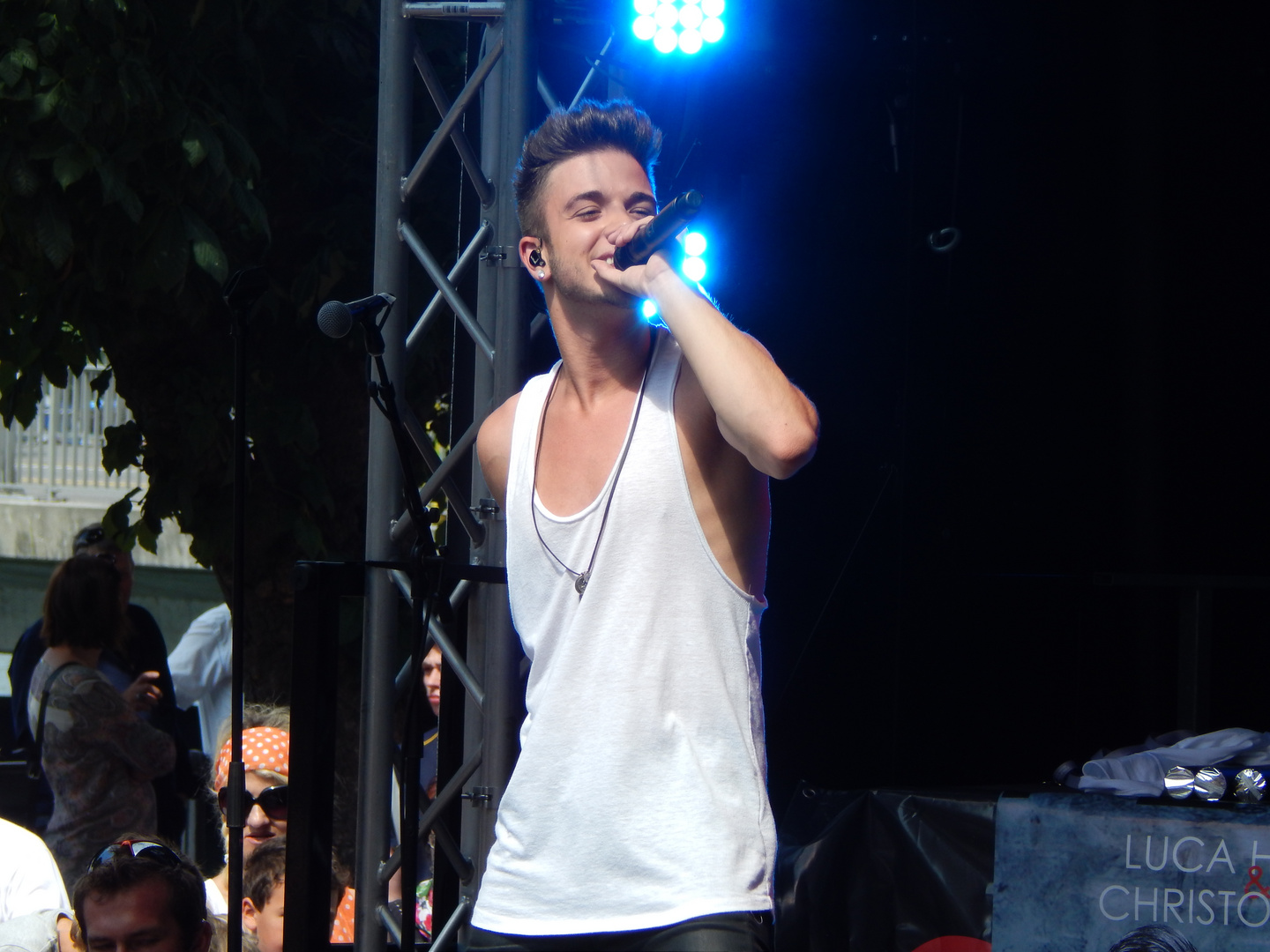
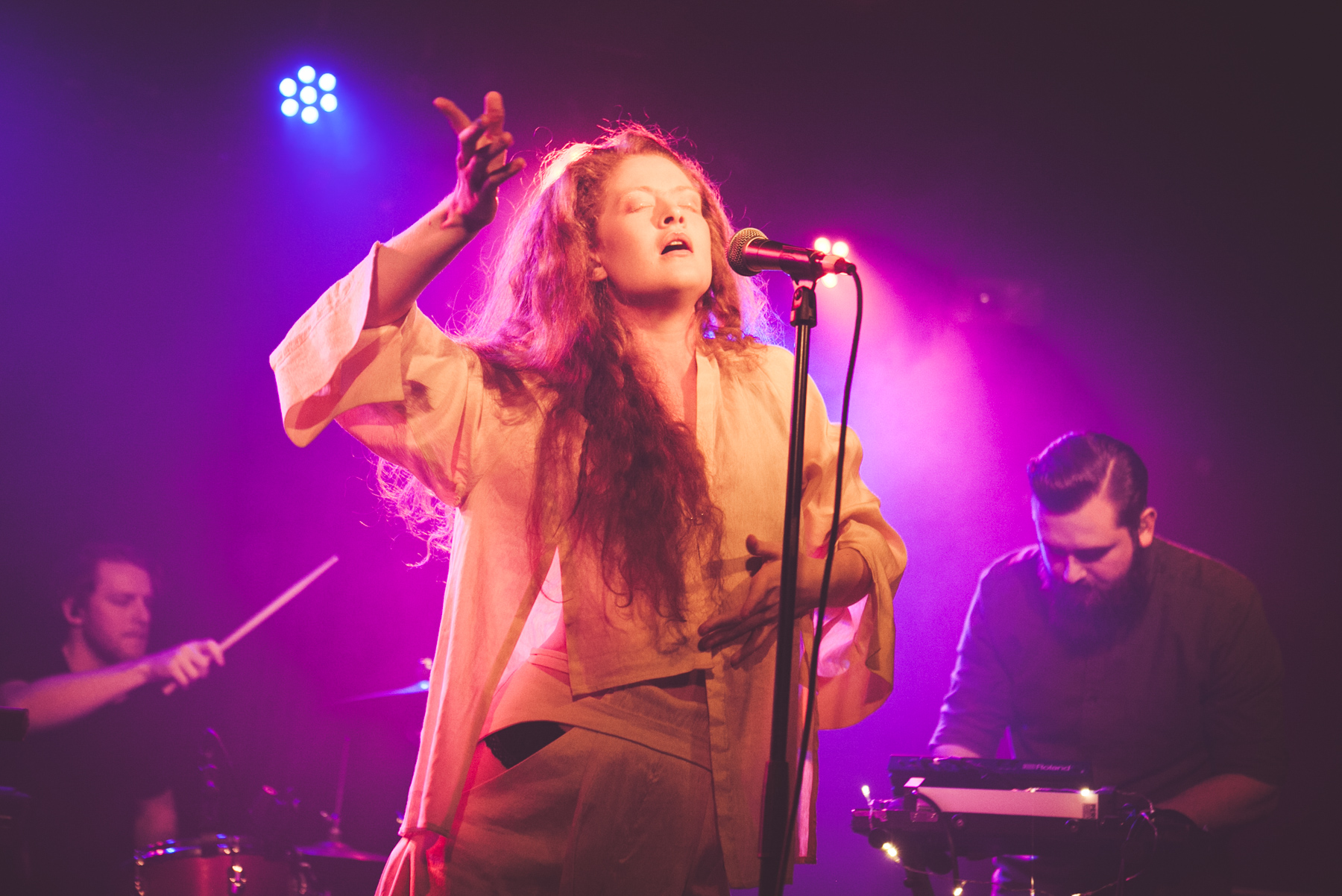
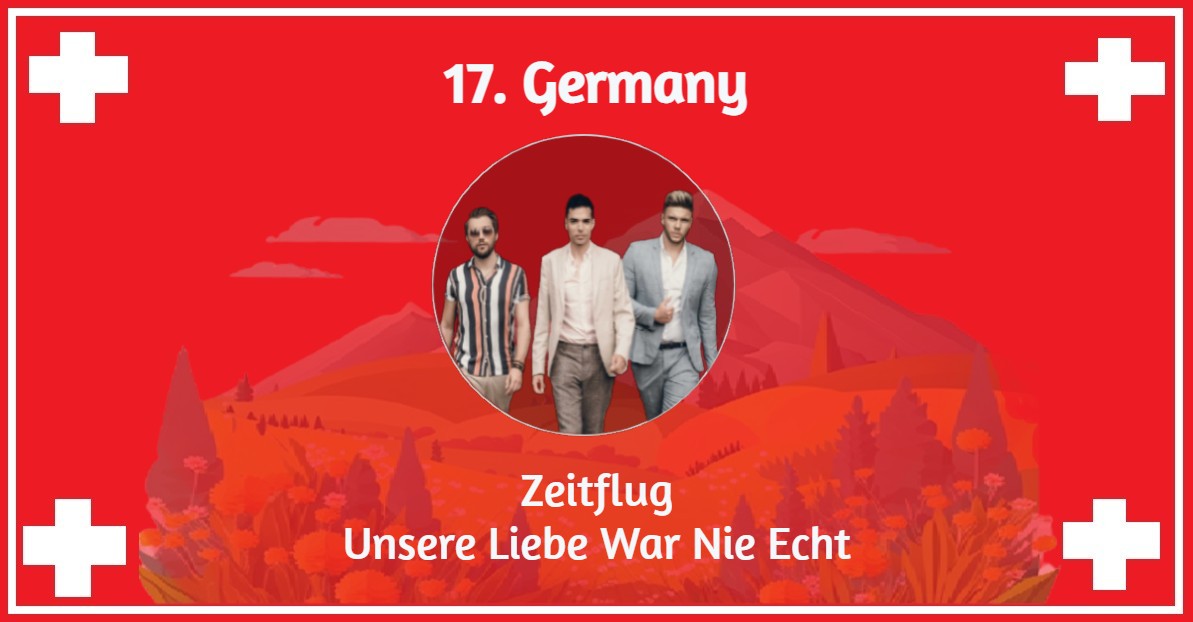
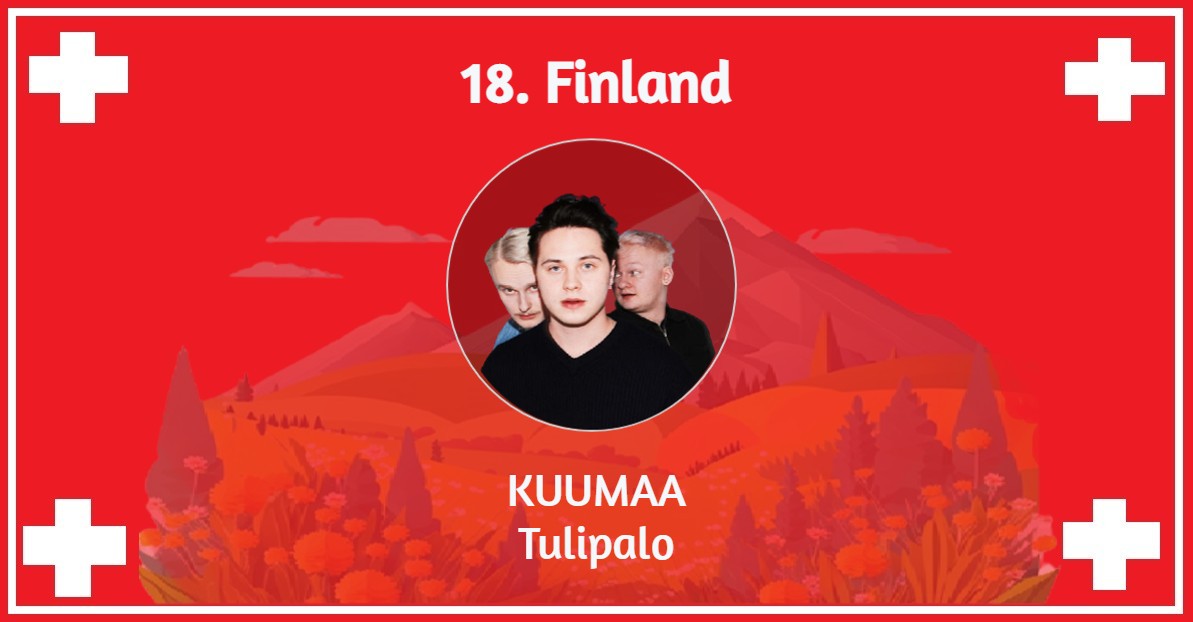
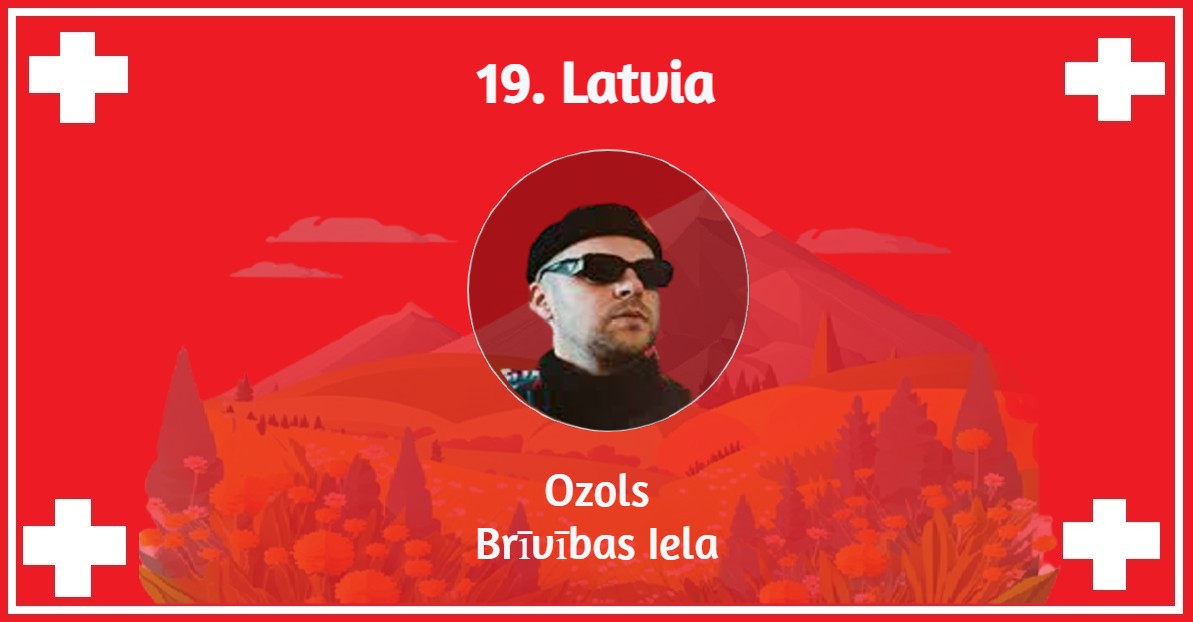
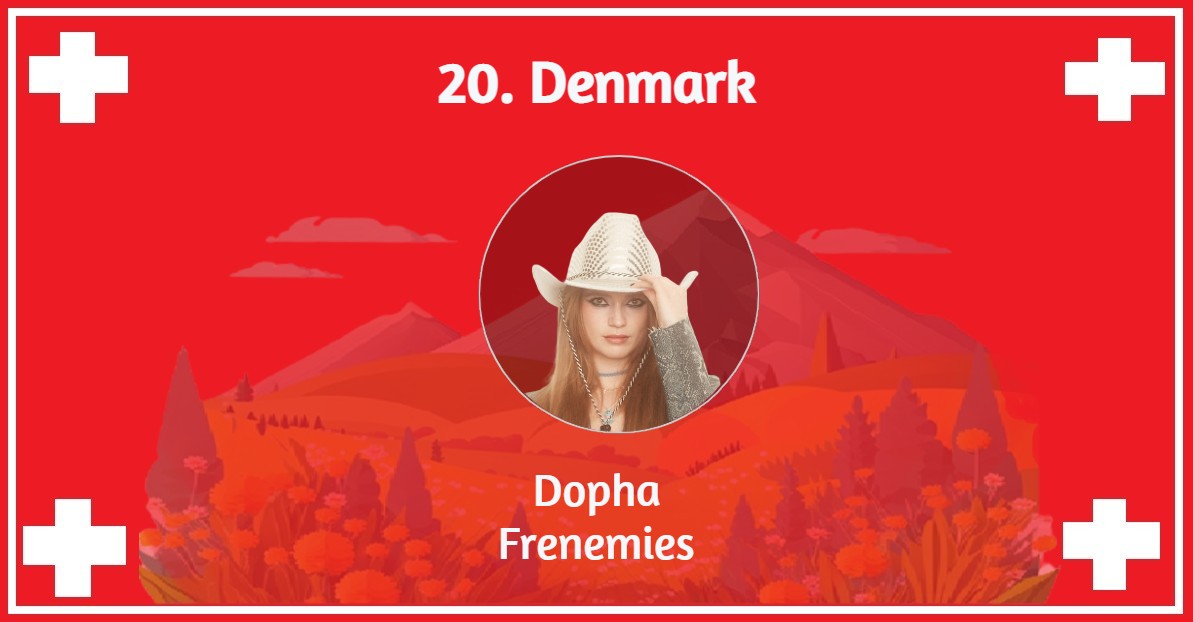
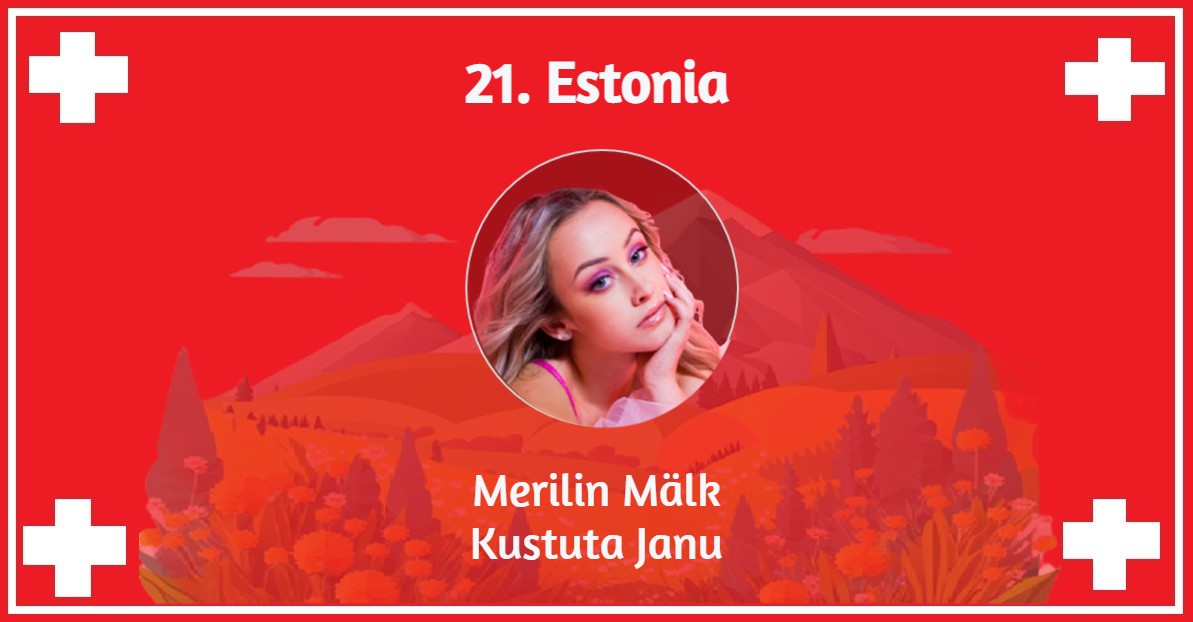
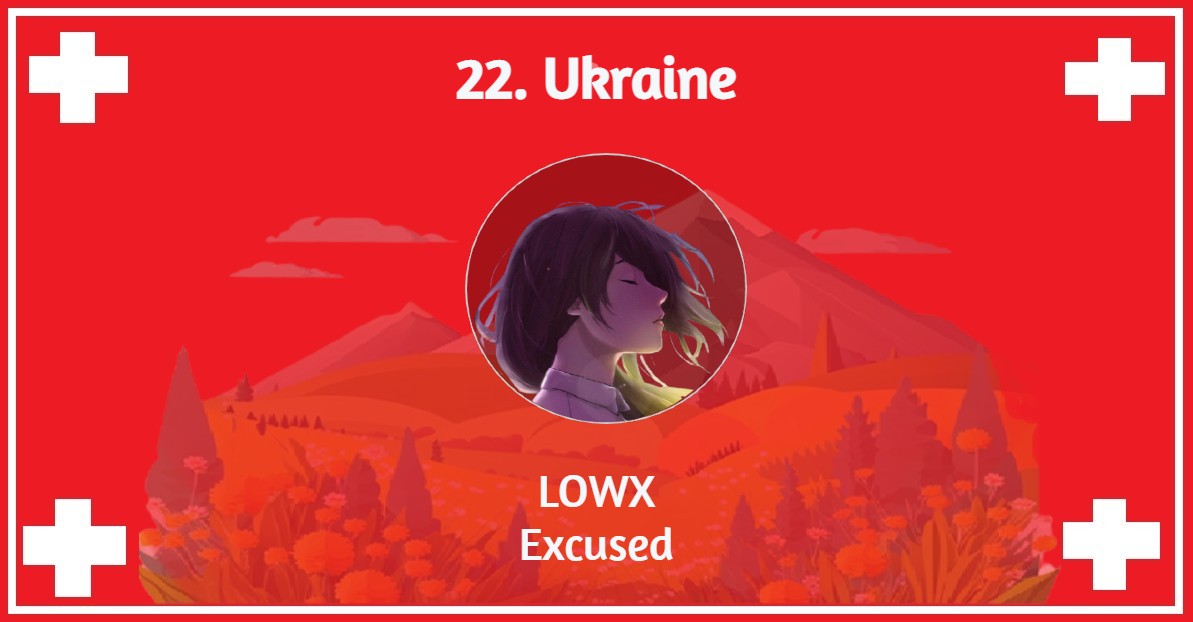
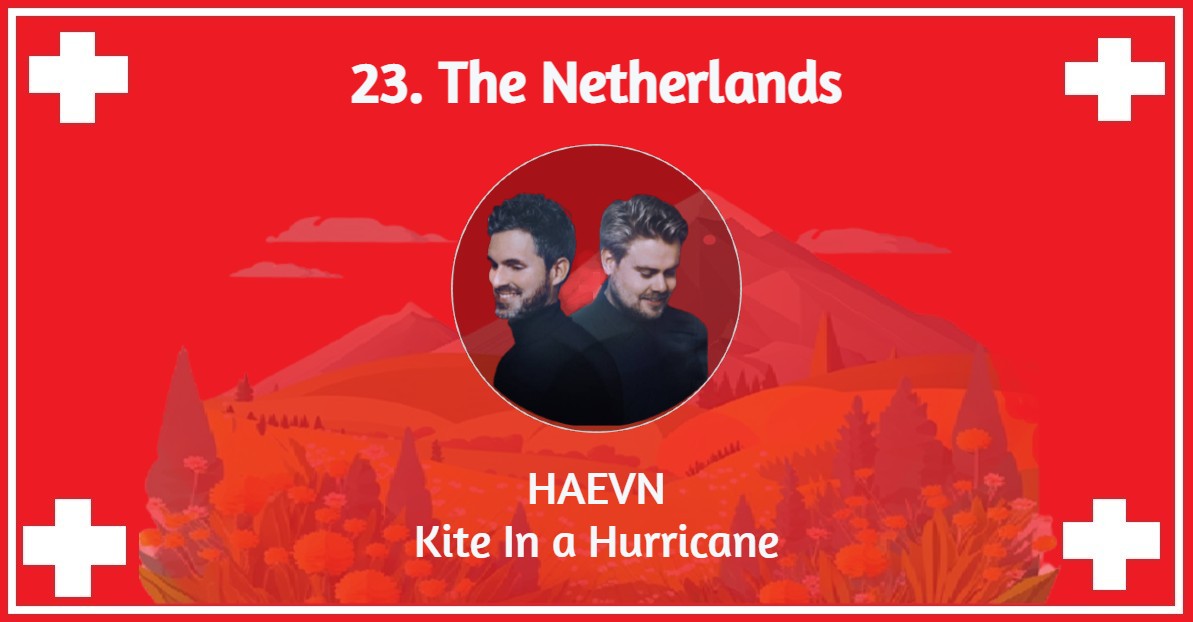
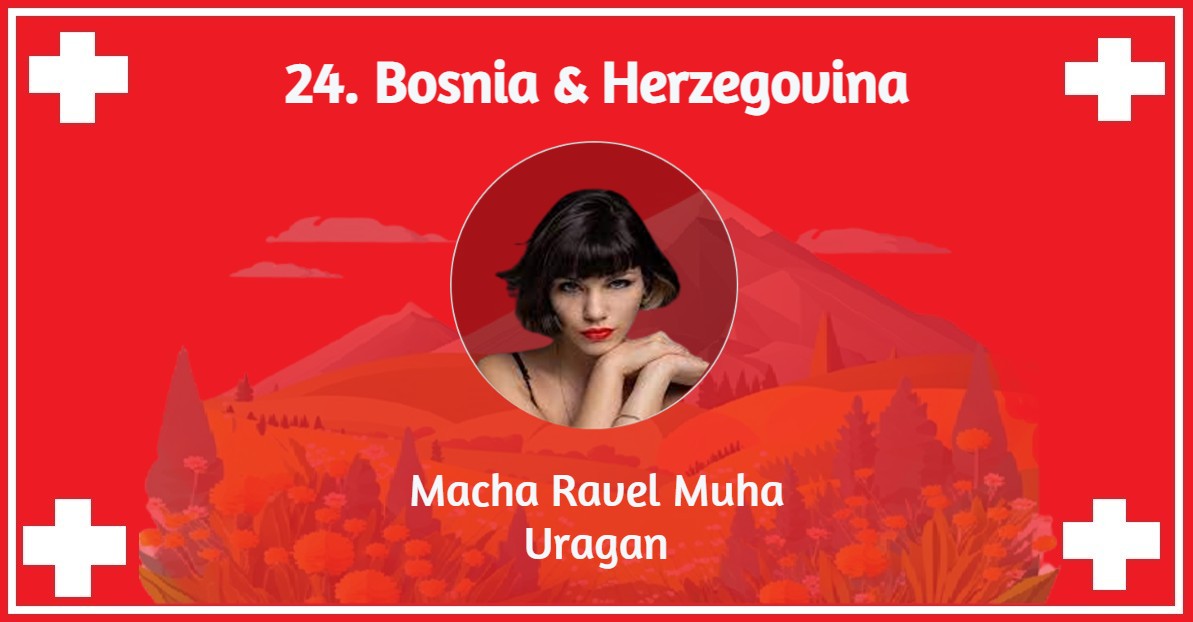
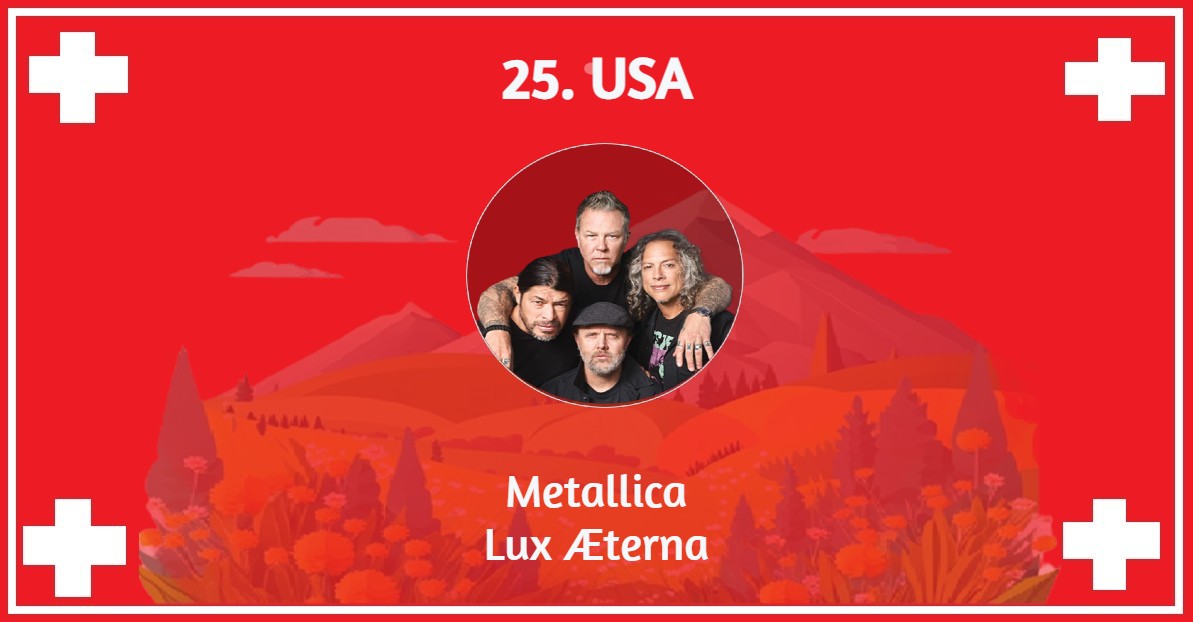
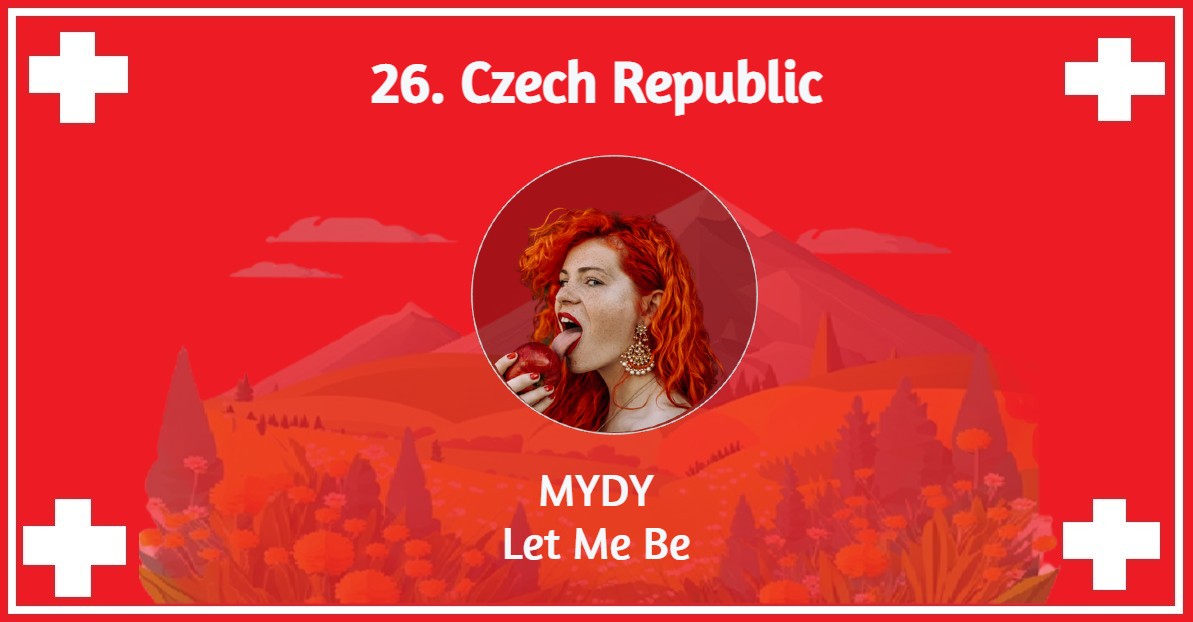
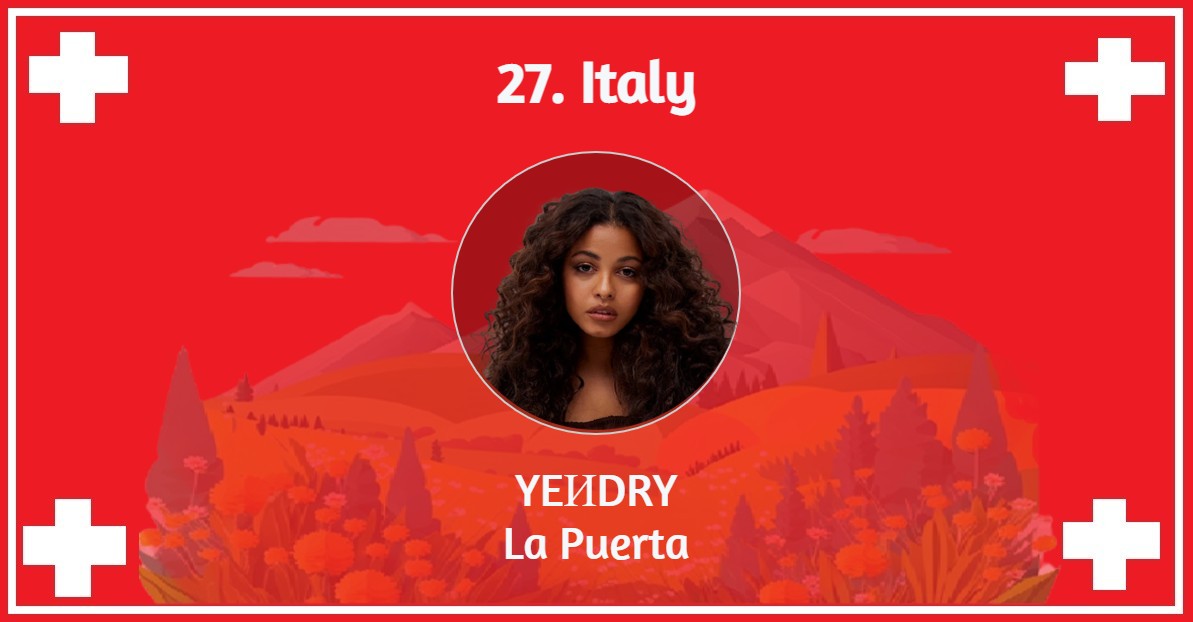
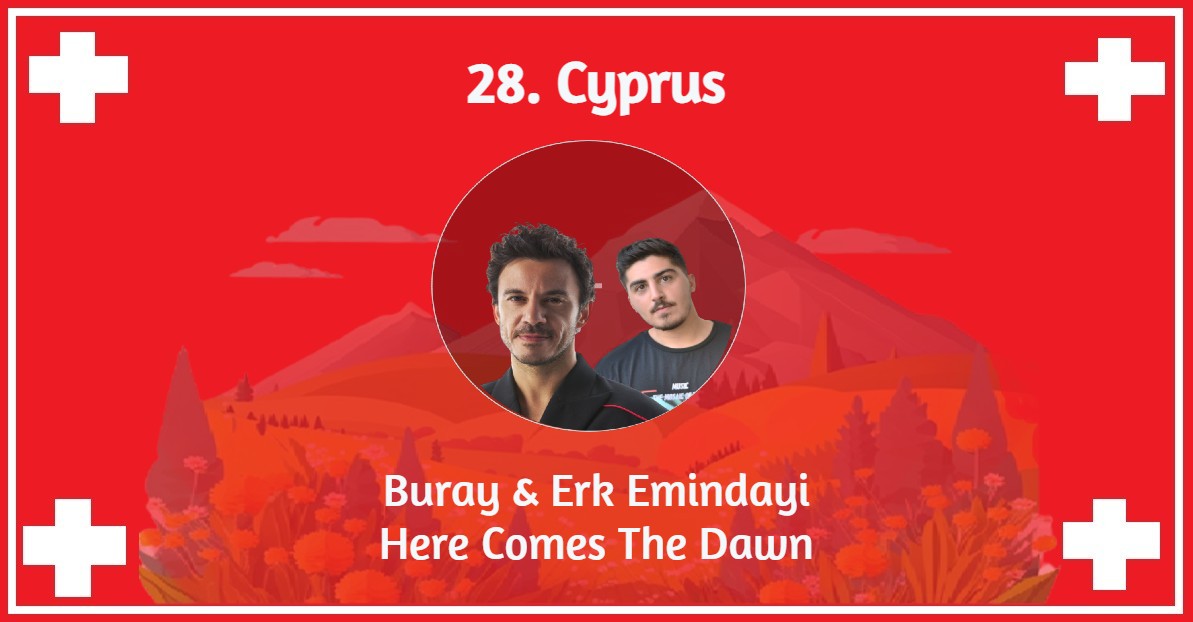
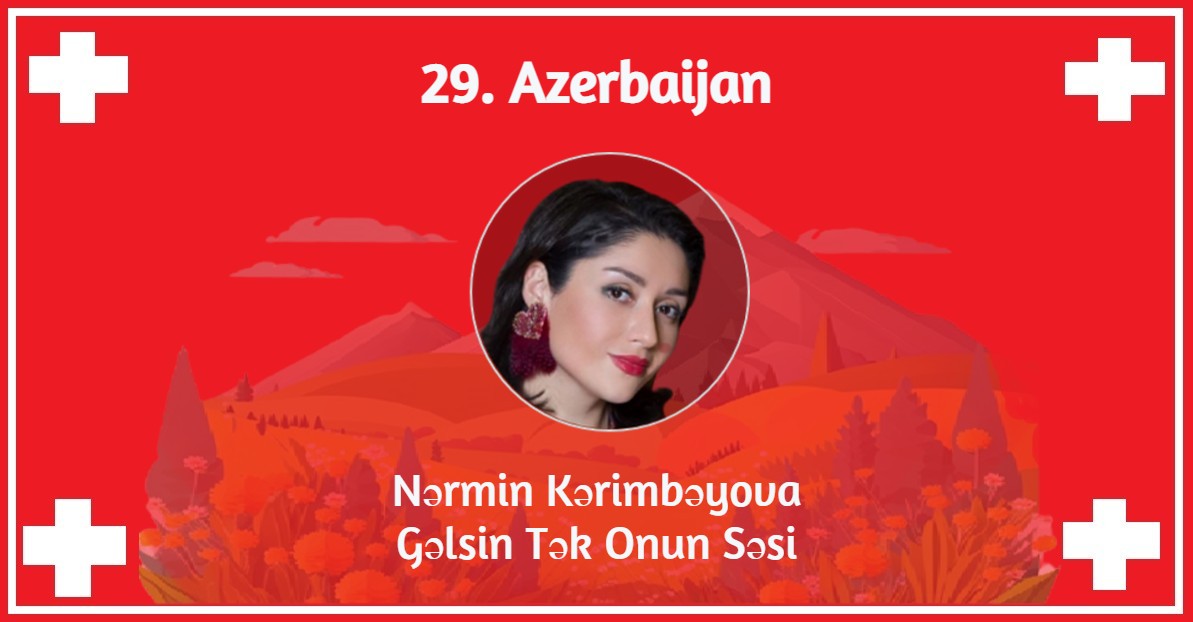
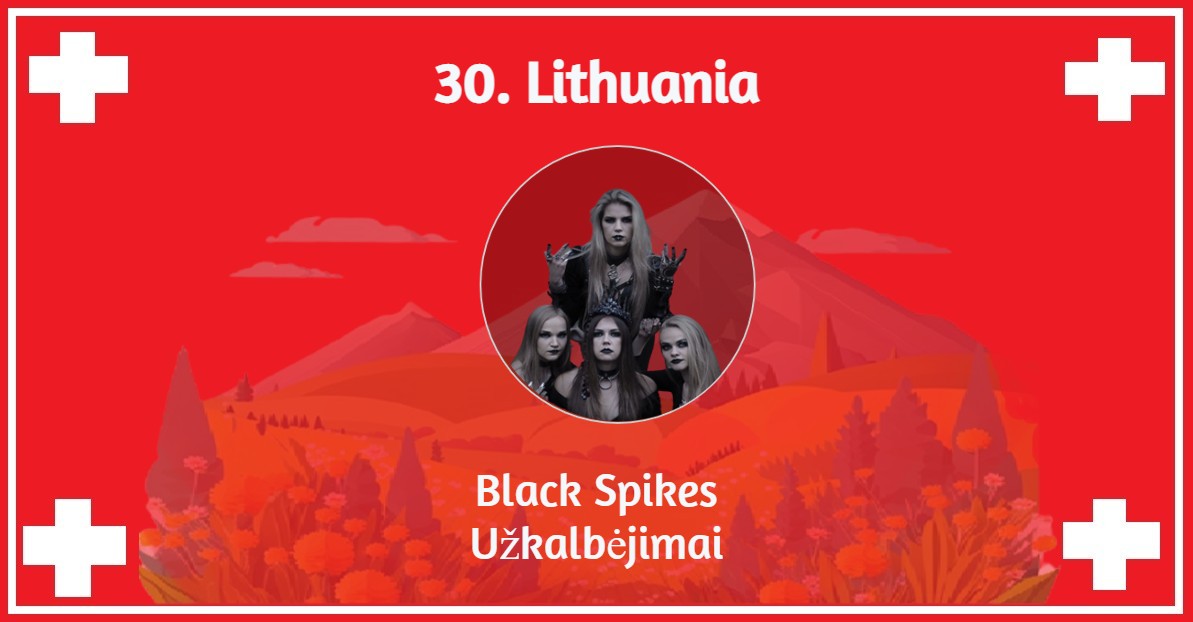
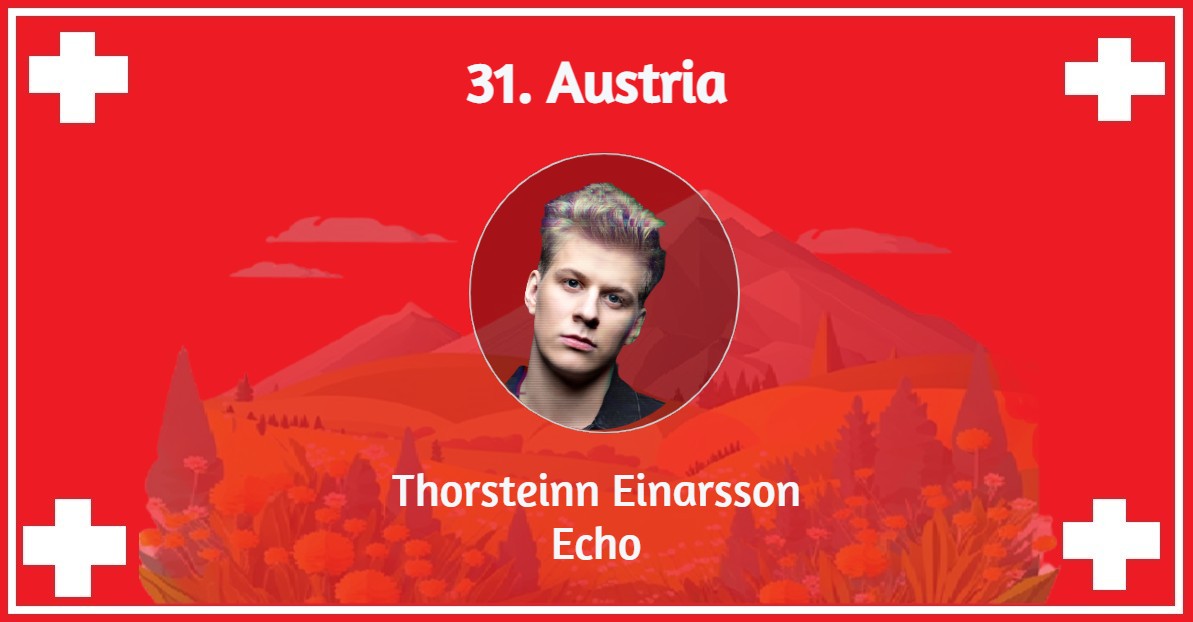
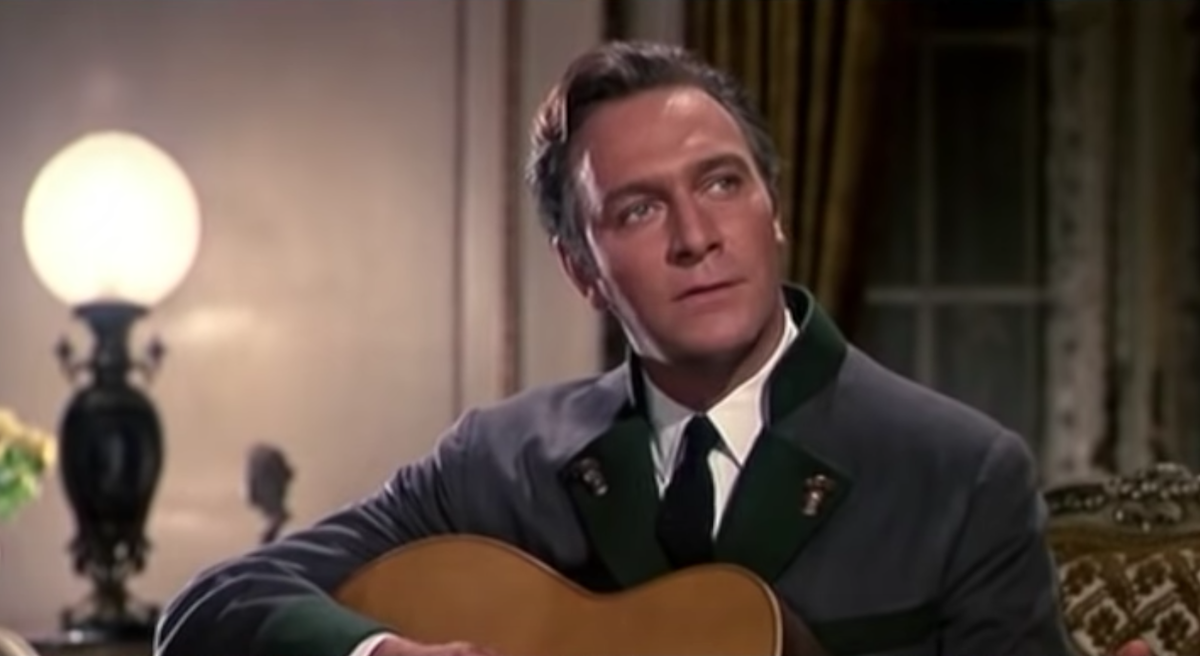



 !
!



